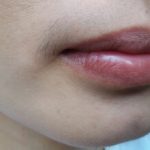OURBLOG
The premier source for everything blog
Our Mission Is To Provide Quality English Language Instruction Through A Variety Of Courses To International And Local Students.
Get the most effective treatment for PCOD and PCOS by most experienced gynecologists at Surgicare

USFDA Approved Procedures
No Cuts. No Wounds. Painless*.
Insurance Paperwork Support
1 Day
Procedure
Polycystic Ovarian Syndrome or PCOS is the hormonal disorder in females of reproductive age. It is the condition in which female ovaries tend to make more of the male hormones as compared to female hormones. If the condition is not treated on time, it can lead to serious problems like type 2 diabetes, obesity, infertility etc. Women suffering from PCOS may have irregular, infrequent or prolonged menstrual cycles and excess male hormone (androgen) levels leading to abnormal hair growth.
Polycystic Ovarian Disorder or PCOD is the condition in which ovaries contain many partially mature or immature eggs, which eventually turn into cysts. Junk food, obesity, stress and hormonal imbalance can give birth to this condition. Common symptoms of PCOD are similar to those of PCOS.
→ Type 2 diabetes
→ Obesity
→ Infertility
→ Cardiovascular disease
→ Sleep apnoea
→ 30% off on diagnostic tests
→ Confidential consultation
→ Most effective Treatment options

Irregular periods

Heavy bleeding

Abnormal hair growth on face and body

Weight gain

Acne

Headaches

Diagnosis
There is no specific test to diagnose the condition of PCOS or PCOD. The gynecologist will initially ask for medical history and will indulge in physical diagnosis. The gynecologist may ask the duration of weight gain, your menstrual periods and other related factors. The tests recommended by the gynecologist are mentioned below. Not all tests are required, the gynecologist will mention the tests required for a particular patient.
Treatment
PCOS is required to be treated to cure the conditions of menstrual irregularities, infertility, hirsutism, acne, obesity. The measurements and treatments used for the treatment are:-
our safety is taken care of by thermal screening, social distancing, sanitized clinics and hospital rooms, sterilized surgical equipment and mandatory PPE kits during surgery.
We offer free follow-up consultations and instructions including dietary tips as well as exercises to every patient to ensure they have a smooth recovery to their daily routines.
Our surgeons spend a lot of time with you to diagnose your condition. You are assisted in all pre-surgery medical diagnostics. We offer advanced laser and laparoscopic surgical treatment. Our procedures are USFDA approved.
A dedicated Medical Coordinator assists you throughout the surgery journey from insurance paperwork, to free commute from home to hospital & back and admission-discharge process at the hospital.
Our Mission Is To Provide Quality English Language Instruction Through A Variety Of Courses To International And Local Students.
A gynecologist diagnose PCOS or PCOD by
Consult a gynecologist to know more about PCOS
Consult the best gynecologist for PCOS or PCOD at Surgicare clinic.
Women with PCOD can still ovulate and can conceive successfully.
No, PCOs and PCOD are not the same. PCOD is Polycystic hormonal disease which occurs due to hormonal imbalance in which ovaries contain immature eggs. Symptoms of PCOD are:
Sadly, this is true. PCOS gives rise to abnormal hair growth, also known as hirsutism, which can lead to hair growth on some parts such as the upper lip, chin, face, and chest.
Medicines and lifestyle changes can treat PCOS. Moreover, if you keep a close eye on your diet and exercise regularly, you can easily get relief from some symptoms of PCOS or PCOD.
A woman with PCOS must avoid these foods:
Consult the best gynecologist for PCOS or PCOD at Surgicare clinic.
Tell us about your problems and we’ll figure out the best treatment option for you.
Surgicare services are accessible Pan India
Surgicare has taken the latest medical technologies to ensure consistent quality of advanced surgical care in 30 cities of India including Delhi, Hyderabad, Bangalore, Chennai, Kolkata, Mumbai, Pune, Jaipur, Nagpur, Bhopal, Patna, Ludhiana, Kanpur, Chandigarh, Bhubaneswar, Lucknow, Indore, Agra, Gwalior, Gurgaon, Noida, Faridabad, Ghaziabad, Ahmedabad, Coimbatore, Kochi, Vizag, Surat, Jammu and Guwahati.